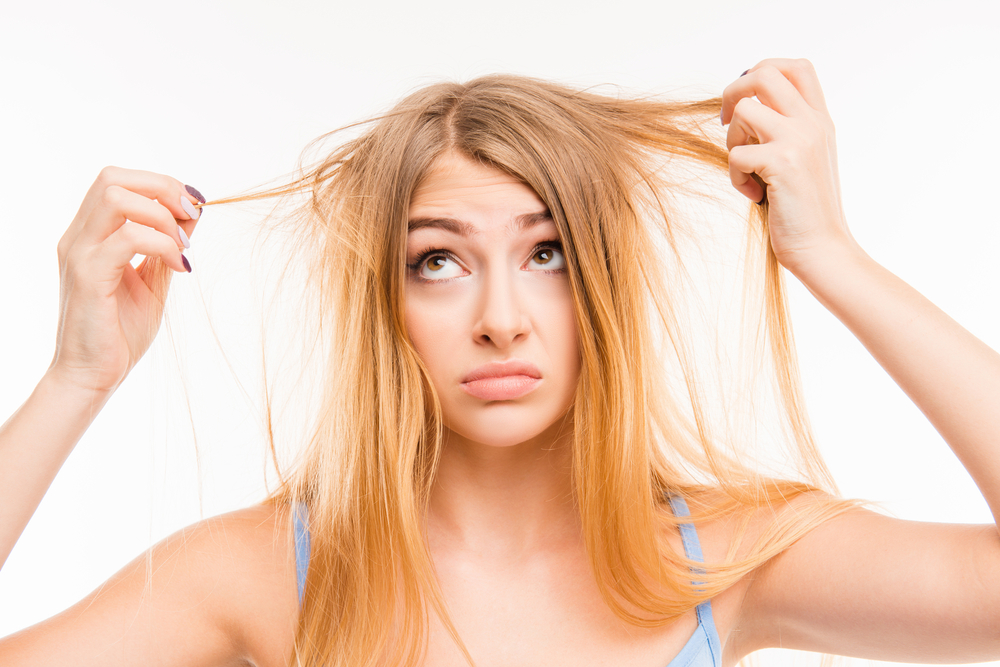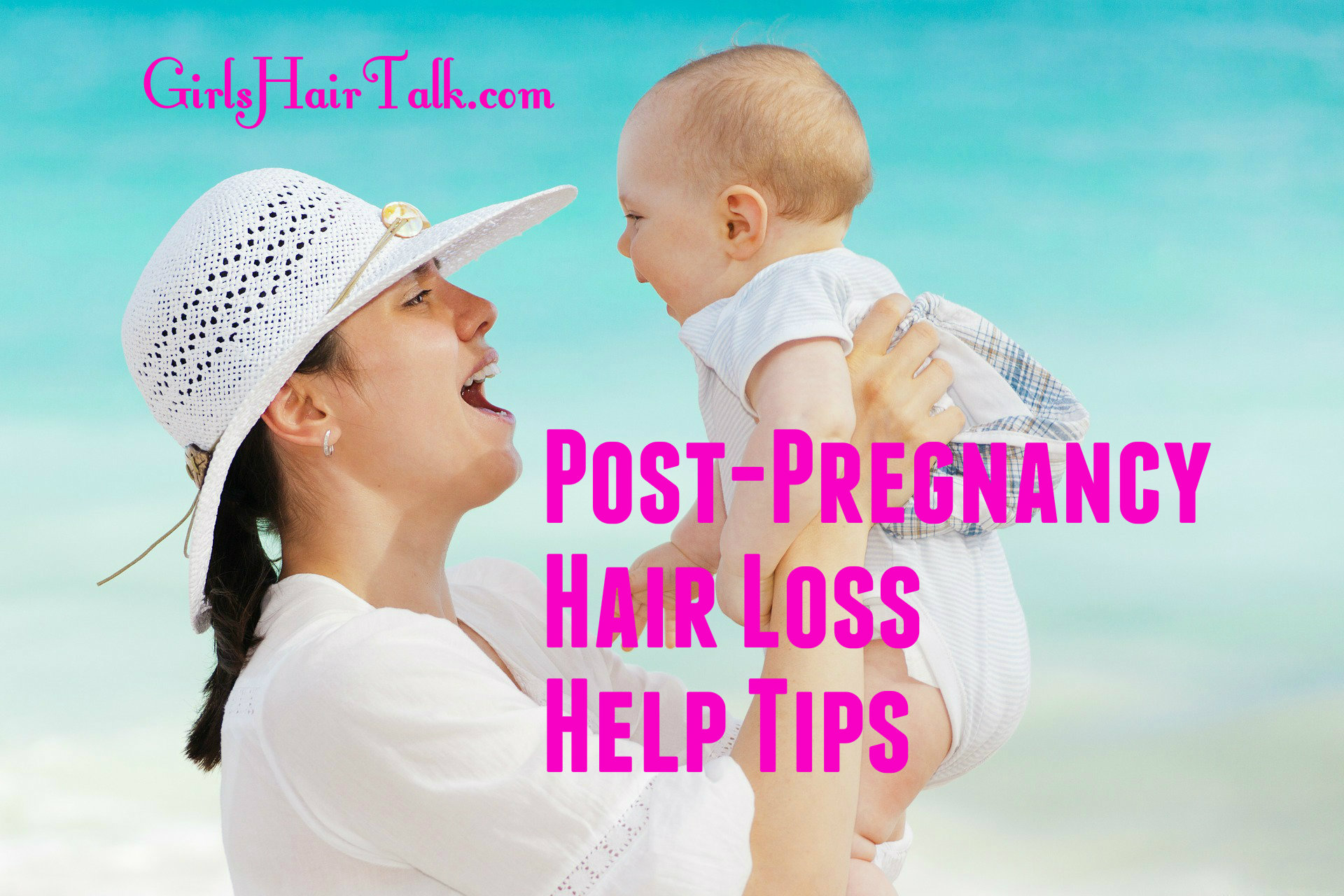Postpartum Hair Loss Can Be Frustrating Here's How to Deal With It
Table Of Content

This can be done manually, simply by moving your fingers around your head in the shower. You could also use a tool like the Briogeo Scalp Revival Stimulating Therapy Massager. Dr. Mariwalla tells her patients to remain calm during this time. “The key thing is reassurance that they will not go bald but it can take almost a year for all of the hair to grow back,” says Dr. Mariwalla. In general, it’s good to talk to your doctor before starting to take herbal supplements. That’s especially true — and important — during the postpartum period.

What Causes Postpartum Hair Loss?
Find out what to expect from your hair after delivery, how to nourish your locks to reduce postpartum hair loss, and when to see a healthcare provider. A growing bump isn't the only outward sign you might notice during pregnancy. Surging hormone levels can change your hair texture and thickness. While this is often a welcomed effect, the reverse is common after delivery.
Hair Growth: How Does It Work?
While postpartum hair loss is normal, medical conditions such as thyroid problems (hypothyroidism and hyperthyroidism) or anemia can cause hair loss. If you feel like you’re shedding a whole lot of hair with no end in sight, mention it to your doctor to rule out other issues. Unfortunately, because it has a hormonal cause, you can’t prevent postpartum hair loss. Typically, about 95% of your hair follicles are in the growing stage at any given time, but after pregnancy, about 60% enter the resting and shedding phases.
How Rosemary Oil Helps Me With Hair Loss After Giving Birth - Business Insider
How Rosemary Oil Helps Me With Hair Loss After Giving Birth.
Posted: Sun, 10 Sep 2023 07:00:00 GMT [source]
When Does Postpartum Hair Loss Start?
Though it may be distressing to lose hair, postpartum hair loss is only temporary. Your hair should regain its fullness by the time your child turns one. You typically have 80,000 to 120,000 hairs on your scalp and shed up to 100 hairs per day.
A jacket potato with beans and some veg on the side is another easy, quick meal. If you are allergic to any of these ingredients, do not try using them on your hair. Also, if you experience any irritation while using a natural treatment, rinse it off immediately.
What Is The Best Supplement For Postpartum Hair Loss?
Postpartum Hair Loss: Treatments And Prevention – Forbes Health - Forbes
Postpartum Hair Loss: Treatments And Prevention – Forbes Health.
Posted: Wed, 14 Jun 2023 07:00:00 GMT [source]
Likewise, health issues may arise during pregnancy, leading to telogen effluvium. The shedding can be quite dramatic, especially if it’s related to an ongoing imbalance in hormones or essential vitamins. In some cases, a thyroid issue such as having an overactive thyroid may be causing the hair loss. Some thyroid conditions are also linked to pregnancy or the postpartum period. If your doctor diagnoses a thyroid condition, he or she will be able to recommend treatment. Certain vitamins and mineral may actually make hair loss worse if you take too much of them, so don’t start taking any supplements for postpartum hair loss without asking your doctor first.
A routine can help the transition to work after having baby
When those hormones drop back to normal, the extra hairs drop, too. Your overall health and nutrition affect your hair health, too. People who experience nutritional complications like anemia, gestational diabetes, and thyroid disease are more likely to experience hair loss, according to several studies. And it’s not the stress of having a newborn that’s making your hair fall out! Here’s what’s up with your pregnancy hair, what you can expect postpartum, and what you can do about it.
It is important to note that nursing women have unique nutritional needs that are not always addressed by a traditional prenatal vitamin formulation. Postpartum hair loss is only temporary and will eventually go back to normal within 6 to 12 months. Make sure you consult with your doctor if your postpartum hair loss is lasting longer than 12 months. This article will provide you with tips on how to prevent hair loss after pregnancy and help you maintain its healthy state. When it’s accompanied by other symptoms, hair loss after pregnancy could be a sign of postpartum thyroiditis.

“Opt for hairstyles that minimize tension on the hair follicles, such as loose braids, buns or ponytails,” advises Gaboardi. “Avoid tight hairstyles and hair accessories that pull on the hair and handle your hair with care to minimise breakage and damage. Hair loss after pregnancy is a common problem caused by hormonal changes, nutritional deficiencies, or even genetics. In most cases, hair growth and loss return to normal within 6 to 12 months after birth, although this might be delayed by not meeting your nutrients needs. Hair loss following pregnancy or postpartum hair loss is a condition in which the mother starts to lose their hair excessively after giving birth. The condition is a result of undesired hormonal changes that mostly occur after or even during pregnancy.
However, you may notice that you have a lot of new hairs that are much shorter than the rest of your hair. These are the new strands growing in, and they are a normal part of the postpartum hair growth process. Vitamins that contain biotin, zinc, and iron can also help with hair regrowth. If you feel discouraged by hair loss, he says to keep in mind that this is a temporary phase.
"Some over-the-counter ingredients have been shown to help thinning hair, including rosemary oil, saw palmetto extract, and marine collagen powder," Mikailov adds. In the meantime, avoid hairstyles that pull at the hair (like tight buns, ponytails, or extensions). The increased hair loss after having a baby is not a sign that you are losing your hair permanently.
Hormonal changes during and after pregnancy are the primary cause of postpartum hair loss. Postpartum hair loss typically affects the scalp but can also affect your eyebrows and eyelashes. You may have heard of the cliché “mom haircut”—a shorter hairstyle that many new moms go for after their baby is born. While many women turn to the mom ‘do for practical reasons, the shorter style may also help reduce the appearance of postpartum hair loss.
Comments
Post a Comment